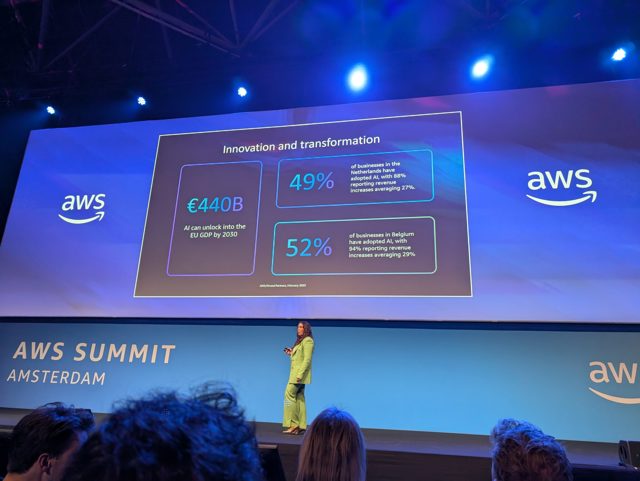< Back to news 


2 July 2024
Explore the Power of Data Commons with the Data Commons Collective
The Data Commons Collective initiative is exploring the societal benefits, power, and limits of data commons, treating data as a new digital resource that serves the community.
Launched by the Amsterdam Economic Board, this collective includes organizations like Waag Futurelab, the University of Amsterdam, Deloitte, Ahold Delhaize, and AMdEX, with more partners expected soon.
Why Responsible Data?
In a big tech-driven era, data has been commercially exploited, overshadowing its potential to serve public interests. Yet, a collective in Amsterdam aims to do just that—share more data to better care for the city. Data commons align with Amsterdam's vision to be a responsible, sustainable, and inclusive digital region by 2040, driven by societal values ensuring autonomy and control over our data.
What is a Data Common?
Data, as a new digital resource, can improve products and services and serve the common good. Unlike traditional commons, data commons are:
-Shareable among a community without personal interactions or geographical boundaries.
-Inexhaustible; data can be endlessly duplicated without losing value.
-Inexhaustible; data can be endlessly duplicated without losing value.
Four Principles for Data Commons:
-Serve public or community goals.
-Require collaboration between individuals, companies, or public institutions.
-Governed by principles determining access, use, and preventing misuse.
-Embedded systems ensure data quality and misuse detection with appropriate responses.
-Require collaboration between individuals, companies, or public institutions.
-Governed by principles determining access, use, and preventing misuse.
-Embedded systems ensure data quality and misuse detection with appropriate responses.
Benefits for Residents:
Amsterdam residents benefit from living in a safe, inclusive, fair, transparent, and sustainable digital city, trusting responsible data handling by governments and organizations. Data owners gain more control, facilitating quicker agreements for data sharing to tackle societal challenges. This is crucial, as less than three percent of global data is shared.
For the full article click here.
Published by Amsterdam Economic Board.
Vergelijkbaar >
Similar news items

April 16, 2025
AWS: Dutch businesses are adopting AI faster than the European average
New research from AWS shows that Dutch businesses are rapidly adopting AI—at a rate of one new implementation every four minutes, well ahead of the European average.
read more >

April 16, 2025
Submit your nomination for the Dutch Applied AI Award 2025
Do you know or develop an innovative AI application? Submit it now for the 2025 Dutch Applied AI Award, presented at the Computable Awards.
read more >

April 16, 2025
UK government tests AI to predict murders
The UK government is developing an AI system that could predict who is most likely to commit a serious crime. Critics call the project dangerous and discriminatory.
read more >